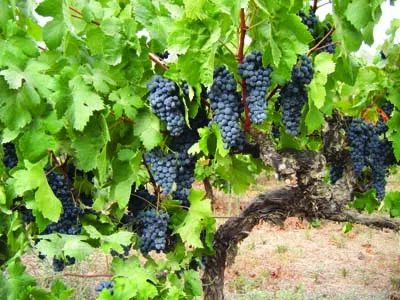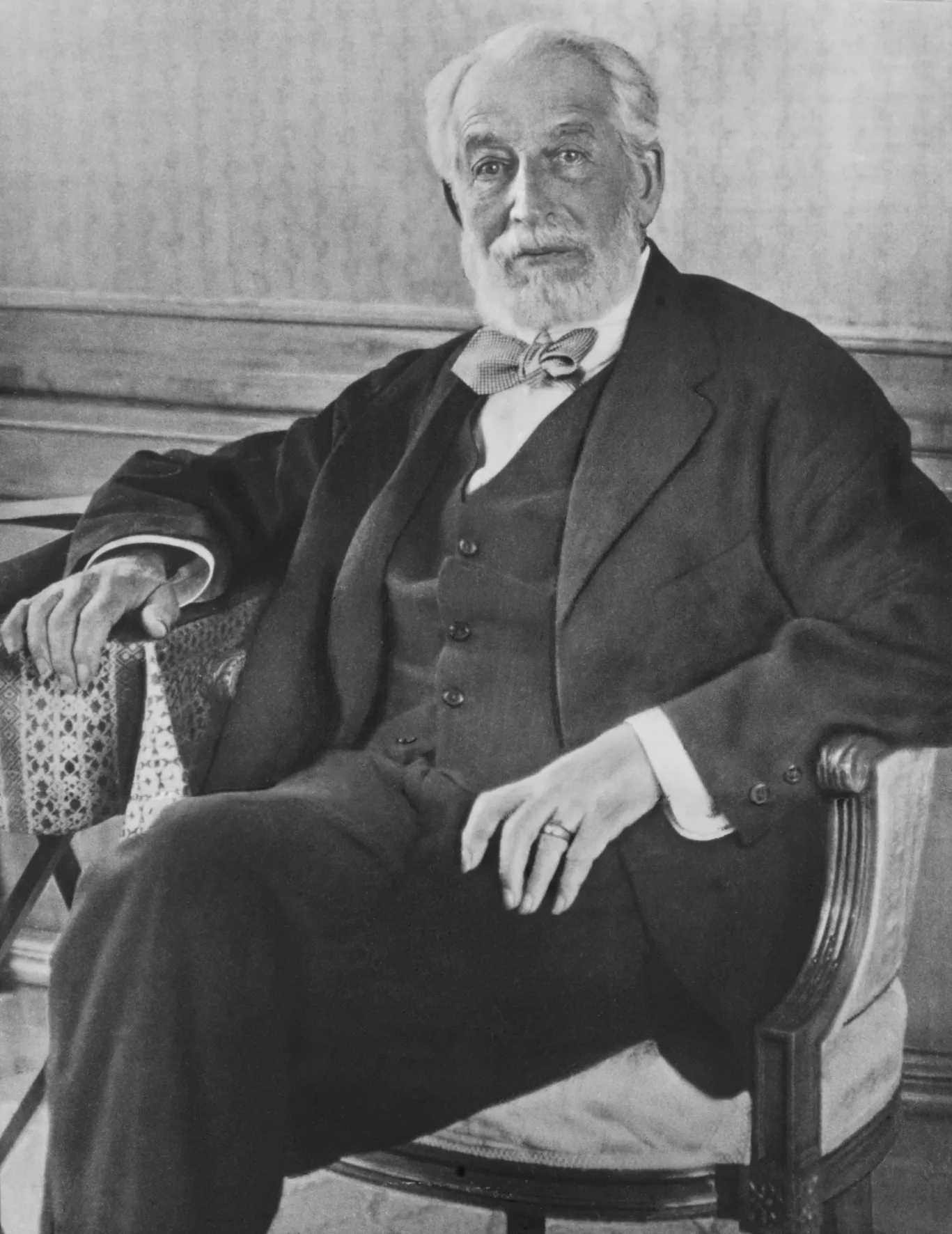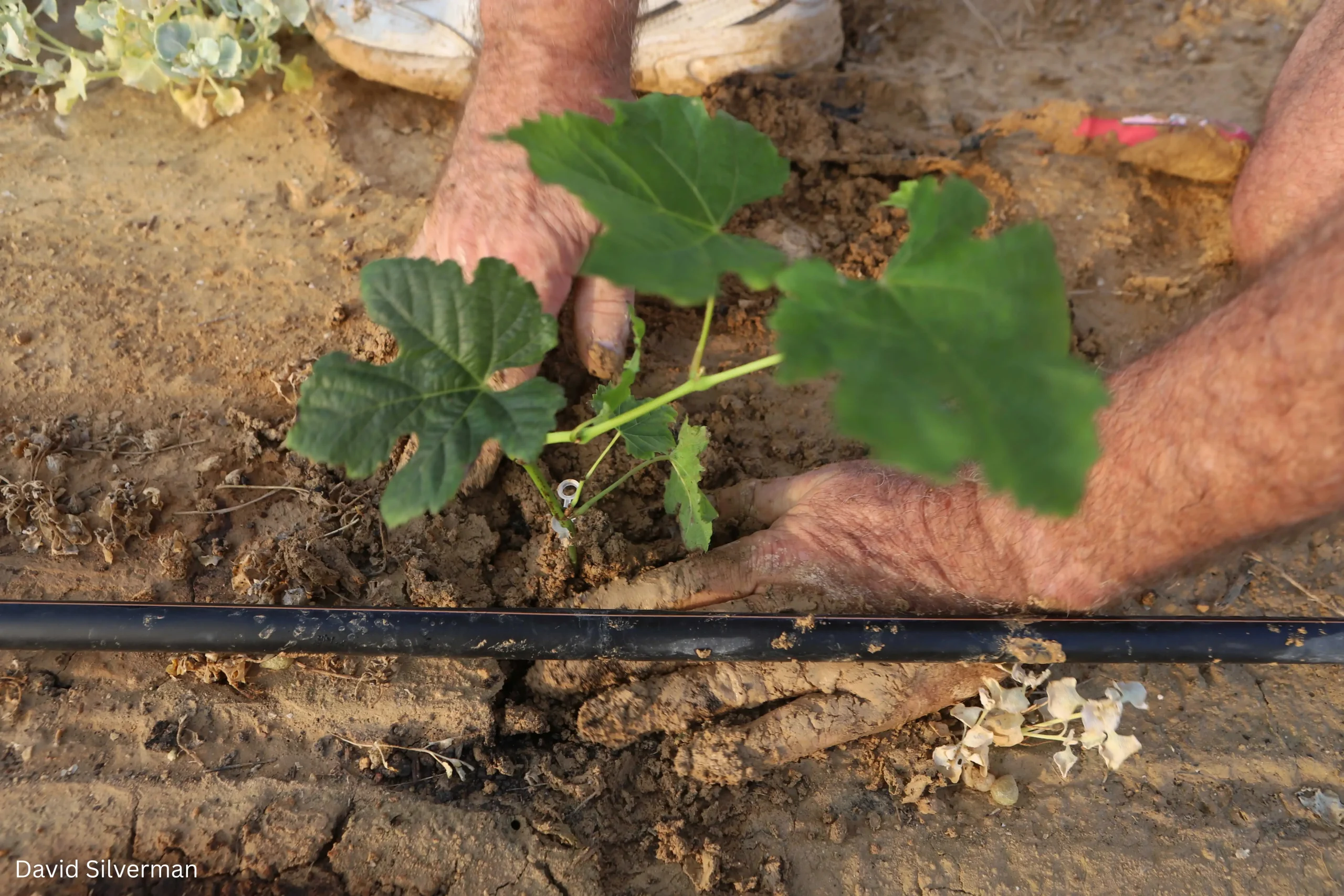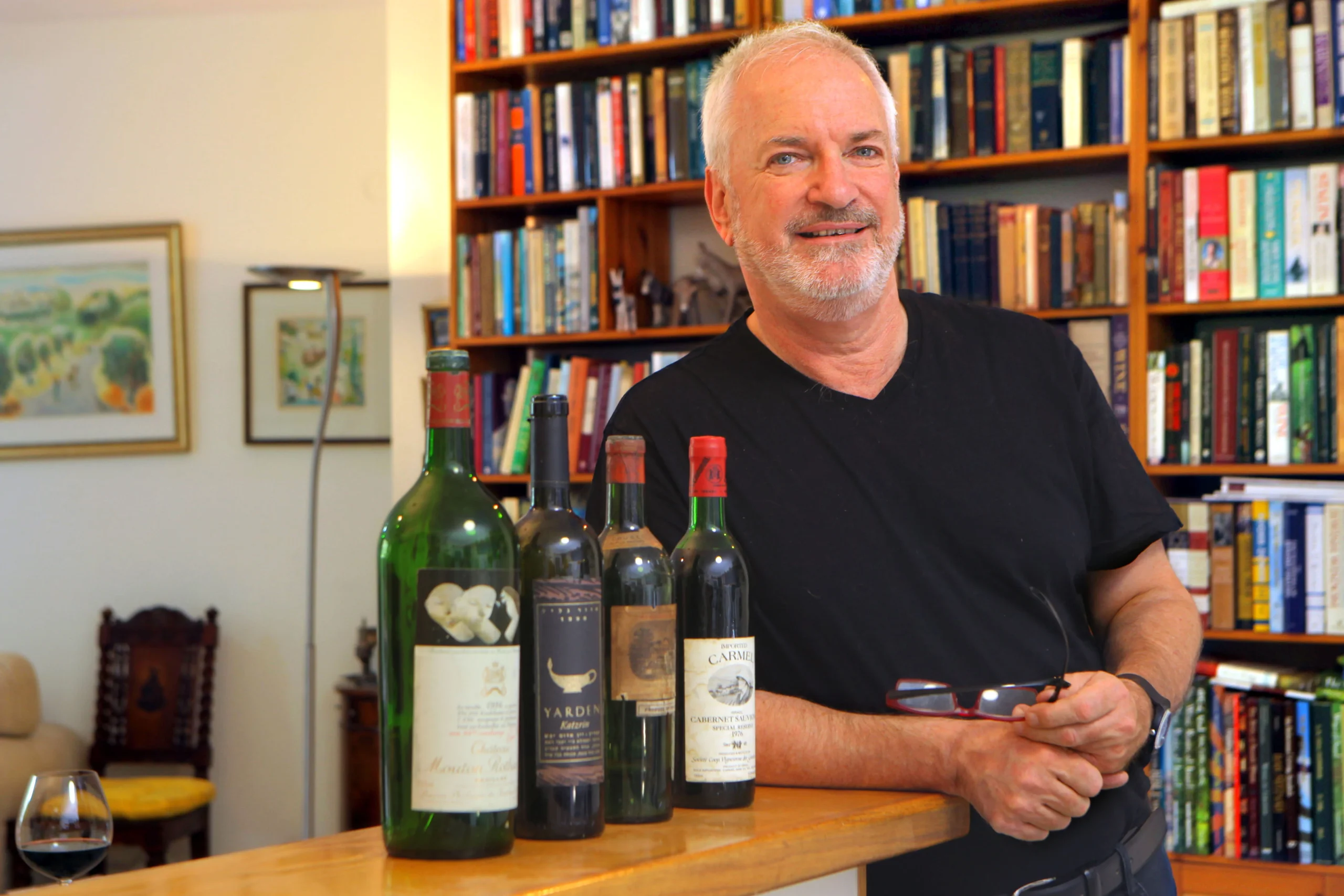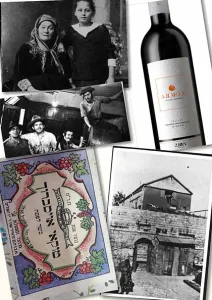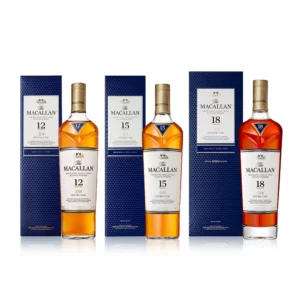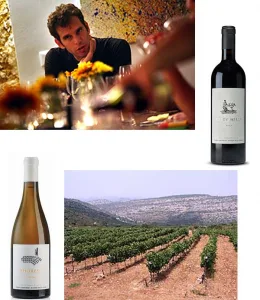Carignan is part of the fabric of the modern Israel wine industry. Its career as an honorary Israeli started in the 1870’s when the Mikveh Israel Agricultural School, which taught many of the country’s new wine growers, planted cuttings. They chose varieties, primarily because of what they judged to be a similarity of climate between 19th century Palestine and the South of France.
In the 1880’s Baron Edmond de Rothschild’s first growers planted a grape called ‘Corignan’, and that was how they pronounced it and wrote it. Amusingly some growers six generations later still refer to ‘Corignan’. For over a hundred years, Carignan was the mainstay of the Israeli wine industry because of its high yields, suitability in our hot climate and flexibility of use.
Carignan hails from Carinena in Spain, though I like best the hypothesis that it came from our region and was bought by the Phoenicians to Sardinia, and spread from there. Though you should not spoil a good story by the truth, there is apparently no evidence for this theory!
It is known as Carignane in California, Carignano in Italy and Carinena or Mazuelo in Spain. It is most prominent in Languedoc-Roussillon, the Catalan regions of Spain, Sardinia and North Africa. Out of the new world countries, it is most successful in Chile. As for the Eastern Mediterranean, it is fairly well distributed in Cyprus, less so in Turkey and is barely seen in Greece. However it is more respected in Lebanon, where it forms part of the blend for the iconic Chateau Musar. In Israel though, it became the most planted variety from the beginning. Even now it is still the second most planted variety after Cabernet Sauvignon.
In the 1970’s over 50% of Israeli grapes were Carignan. As a result, people used to drink far more Carignan than they ever knew. It might have been in your grape juice, what your Kiddush wine was made of and also used in inexpensive blends. The only wine actually labelled Carignan was likely to be the cheapest wine under the most basic label in a winery’s portfolio.
As a result of Carignan’s dominance, many times the grapes were used for a wine masquerading as Cabernet Sauvignon. Israel has never been great for wine laws and it was not so long ago that there was not enough Cabernet to justify all the Cabernet Sauvignons on the market! I remember Daniel Rogov, z”l, saying to me wrily after sampling a Cabernet Sauvignon from a respected winery, that it was the best Carignan he had tasted!
Carignan was also the largest planted grape in France, dominating the Languedoc, but the variety was not appreciated. When there were incentives to grub up vines, Carignan was top of the list.
So what were left was old vine vineyards, which the owner cared for enough not to uproot. The revival began in the 1990’s in places like Priorat in Spain, and Fitou & Corbières in France. The first glimpse of a different way of looking at things here, was when Yair Margalit produced a quality Carignan in 1999 and also called it Carignan. His was arguably Israel’s first cult winery, so people noticed.
Then in the 2000’s Carignan began its reemergence. The small family winery Vitkin, was the first to specialize in quality Carignan. They produced their first in 2002. Carmel followed with theirs in 2004 and became the first of the larger wineries to rehabilitate Carignan. What was in common between these two wineries was Assaf Paz, Israel’s own Mr. Carignan and the real pioneer of quality Carignan in Israel. He was a winemaker of Vitkin owned by his sister and brother in law, and at that time he was also a winemaker at Carmel’s Zichron Ya’acov Cellars.
He looked at those same vineyards producing massive yields to be used for kiddush wines, identified the better plots and determined to make a quality wine. This he did by using old vine vineyards, reducing yields and hey presto, the ugly duckling became a swan.
Later, it was not surprising that Carmel and Vitkin were the first wineries to launch prestige Mediterranean style blends, in which Carignan played an important part. The Carmel Mediterranean and Vitkin Shorashim were also pioneering wines, forerunners of a new trend.
A few months ago I attended a tasting of Carignans from Israel, France and Italy organized by David Perlmutter, the wine guide extraordinaire, and led by Elizabeth Gabbay, Master of Wine, who gave an excellent presentation. A tasting of varietal Carignans is an extremely rare event. Carignan is rarely the bride elsewhere too, being hidden in regional blends. In Priorat it is usually blended with Grenache. In places like Corbières and Fitou it is often blended with Syrah, Grenache or Mourvedre.
One thing became apparent. Different Carignans speak different languages. It does not have a fruit forward character that is easy to identify. That is why it is hard to pigeonhole and gets a bad press. What is does have is good tannins and pronounced acidity.
What is clear though, is that Israel is producing some very good Carignans, which do not suffer by comparison with anywhere else. In a time when Israel seems to be awash with Cabernets, Merlots and Shiraz, the odd varietal Carignan provides welcome variety.
Carignan also represents our own history of winemaking here. The original flirtation with Mediterranean varieties, followed by a long history of winemaking where price and the kashrut certificate where more important than quality. Then a quality revolution and lately a move back to Mediterranean varieties. Somehow Carignan represents the Israeli story. It was one of the few varieties here even before Rothschild founded a modern wine industry. Now it represents a wine almost as authentically Israeli as we have got.
The country’s main Carignan specialists are Carmel, Recanati, Somek & Vitkin. Other Israeli wineries producing good Carignans are Arza, part of their i-med label, Beth-El, with vineyards at 800 meters in what I call the ‘Central Mountains’, Jezreel Valley, gold medal winner at the Eshkol Ha’Zahav Competition, Trio and Vortman Wineries.
Vitkin Carignan 2009 (NK)
This for me was the best wine of the tasting, including the overseas Carignans. It was certainly more clearly defined and elegant than the other Israeli expressions . A wine with a beginning, middle and end, but moderate in all aspects, and with everything in proportion. The fruit was from the Hanadiv Valley south of Zichron Ya’acov.
Somek Carignan 2011 (NK)
Somek wines are grown by Barack Dahan a fifth generation grower and the wines are made by his wife Hila, who studied at Adelaide University. The vineyards for this wine also come from the Hanadiv Valley. This wine was dominated by ripe aromas of black fruit and broad oak flavors, but despite this had a refreshing finish.
Carmel Vineyards Carignan 2010
Carmel is the winery most associated with Carignan over the years. This wine comes from 40 year old vines in the Shefaya – Ein Tut region east of Zichron Ya’acov. It has a small amount of Petit Verdot in the blend. Represents good value.
Trio Spirit of Alona 2012
This is a Carignan from the Alona Valley, made by Yotam Sharon for Trio Winery. Actually it is my favorite red wine of the Trio family. The wine has a nose of blueberry, plum with a hint of Mediterranean herbs, a touch of sweet vanilla and a full flavored finish.
Recanati Wild Carignan 2013
A dilapidated and run down vineyard was spotted by winemaker Ido Lewinsohn in the Judean Foothills. He had the vision to forsee the wine that could come from this. The result is the leading Israeli Carignan, recognizable by the attractively, rugged old vine drawn on the label. Recanati’s Carignan has scored 92 points with Robert Parker’s Wine Advocate and is being sold by Berry Brothers, the world’s most famous traditional fine wine shop in London. Definitely, the best ambassador internationally for Israeli Carignan.
This is a big wine. The aroma is profound with black fruit dominating, yet it is encircled by a blanket of oak. The mouth feel is chewy, there is a balancing acidity and it has a long, long finish.


